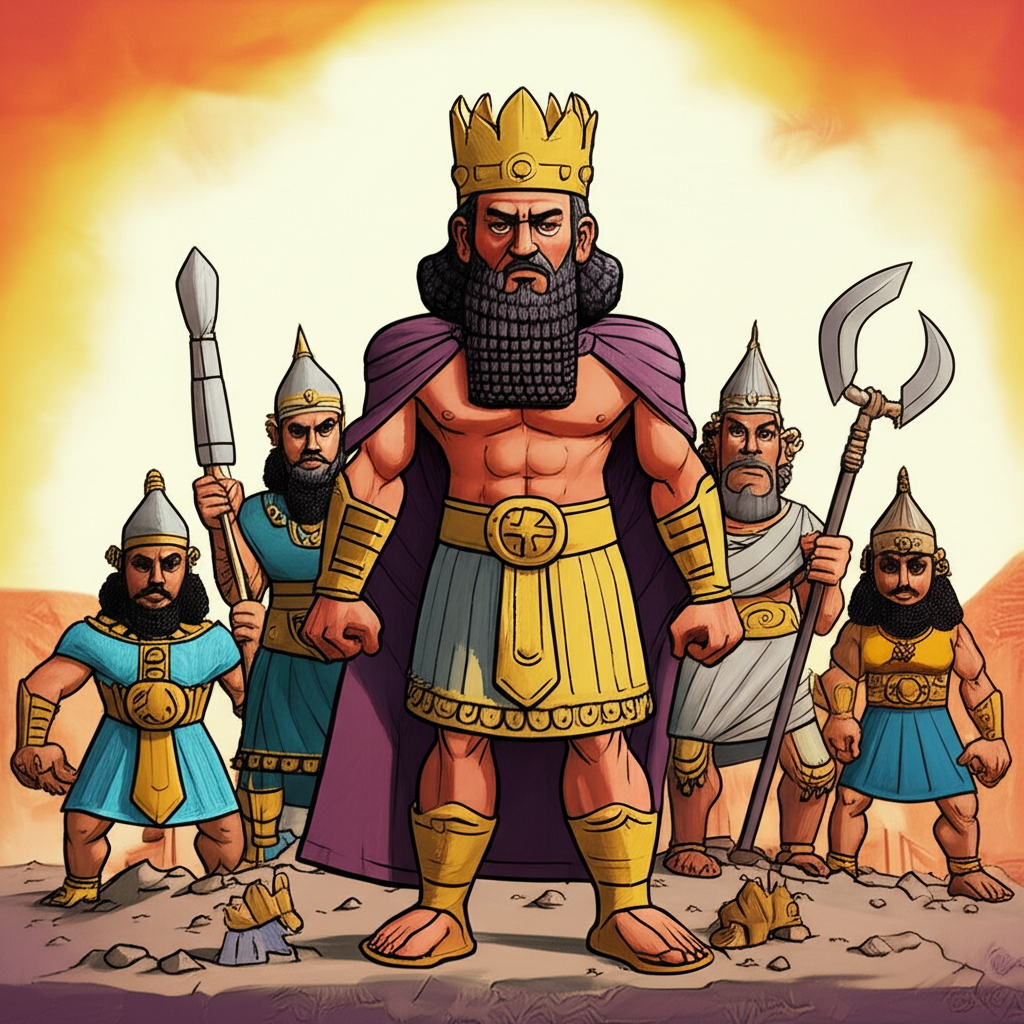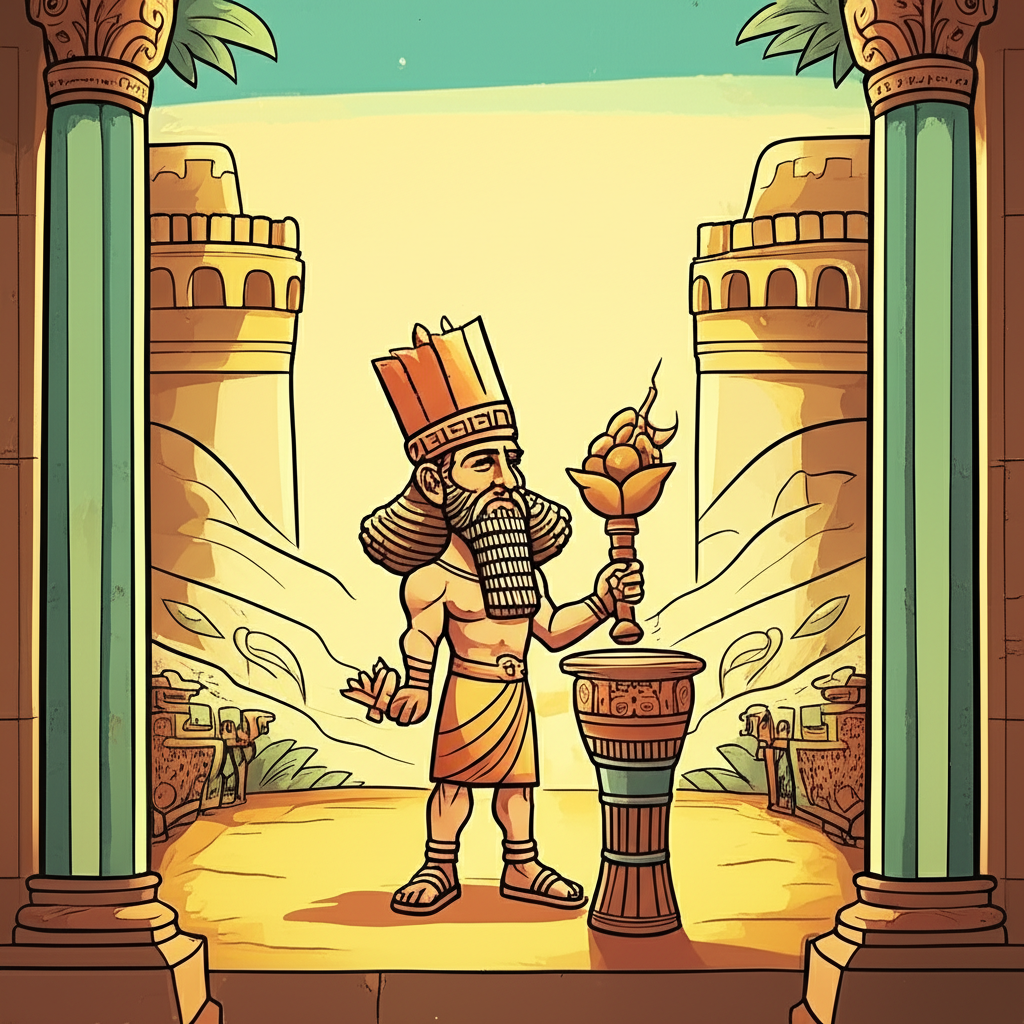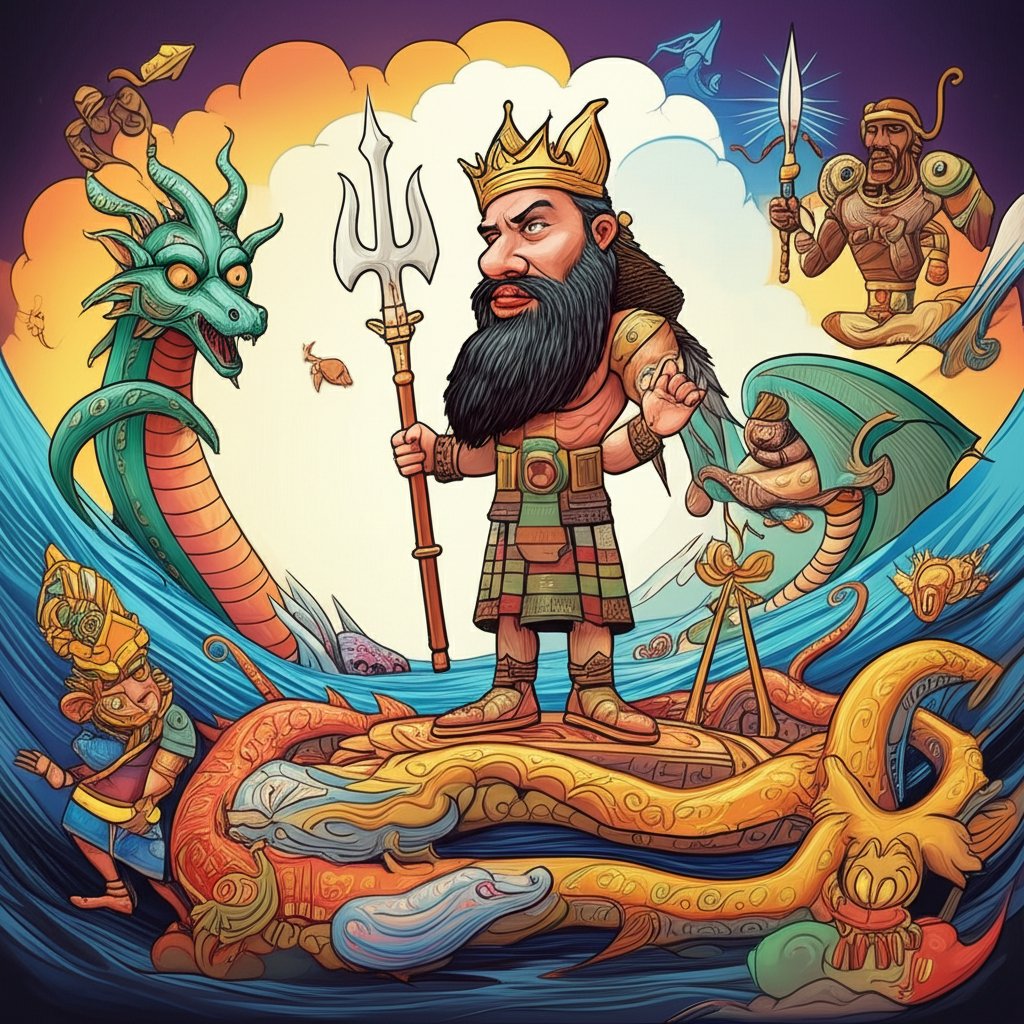
The vast expanse of ancient Mesopotamia, a fertile crescent nestled between the Tigris and Euphrates rivers, was a crucible of civilization. From this land of early cities and innovative thought emerged one of humanity’s most enduring and profound narratives: the Epic of Gilgamesh. This legendary tale, pieced together from clay tablets inscribed with cuneiform script, is a traditional story told by ancient people, a testament to their beliefs, fears, and aspirations. It is not a historical account to be believed as truth, but rather a rich tapestry of cultural memory and imaginative storytelling that offers a window into a world long past.
The cultural era that fostered the Epic of Gilgamesh stretches back to the Sumerian civilization, which predated the Akkadian Empire. Yet, the epic’s themes, particularly those concerning the transience of power and the search for lasting legacy, found a poignant resonance in the collective consciousness that might have followed the decline of the mighty Akkadian Empire. This empire, established by Sargon the Great around 2334 BCE, was a marvel of its time, uniting disparate city-states under a single rule and establishing a centralized administration. Its eventual collapse, marked by internal strife and external pressures (such as the Gutian invasions), left behind a profound sense of impermanence. The people of Mesopotamia, living in a world governed by powerful, often capricious deities, viewed life as a delicate balance between order and chaos. Kingship was seen as divinely ordained, a bulwark against the forces of destruction, yet even the greatest kings and their empires were subject to the will of the gods and the inexorable march of time. Their worldview was steeped in polytheism, where every aspect of nature and human endeavor was attributed to a specific deity, and humanity’s purpose was often seen as serving these gods.
Central to this epic is Gilgamesh, the legendary king of Uruk, depicted as two-thirds divine and one-third human. He is a figure of immense strength and beauty, initially portrayed as a tyrannical ruler whose insatiable demands oppress his people. His symbolic attributes include colossal physical power, boundless ambition, and a restless spirit. His journey throughout the epic represents the human struggle with hubris, the profound fear of death, and the ultimate transformation into a wise and just leader. Then there is Enkidu, a wild man created by the gods to curb Gilgamesh’s arrogance. Enkidu symbolizes untamed nature, raw strength, and later, through his friendship with Gilgamesh, loyalty and the civilizing influence of human connection. His eventual death serves as a brutal awakening for Gilgamesh to his own mortality. Other significant figures include Humbaba, the monstrous guardian of the Cedar Forest, who represents the chaotic, dangerous forces of the wilderness that civilization seeks to conquer. The goddess Ishtar, powerful and capricious, embodies both fertility and destructive wrath. Finally, Utnapishtim, the immortal survivor of a great flood, stands as a symbol of unattainable longevity and ancient, guarded wisdom. These figures are not presented as beings to be revered, but as archetypes within a narrative framework, each contributing to the epic’s exploration of profound human questions.
The narrative of Gilgamesh begins in Uruk, a city of magnificent walls built by the king himself. Gilgamesh, powerful but arrogant, abuses his authority, taking what he desires from his subjects. The people cry out to the gods, who respond by creating Enkidu, a wild man living among animals. Enkidu is eventually civilized through an encounter with the harlot Shamhat, who introduces him to human ways. He travels to Uruk to challenge Gilgamesh. Their epic battle, a clash of titans, ends in a stalemate, but from this confrontation, an unbreakable bond of friendship is forged.
United, Gilgamesh and Enkidu embark on a perilous quest to the Cedar Forest, intending to defeat the monstrous Humbaba and bring back valuable timber. Their journey is fraught with danger, reflecting the Mesopotamian struggle to tame the wild. They overcome Humbaba, felling him and the sacred cedars, an act that brings them glory but also incurs divine wrath. Upon their return, the goddess Ishtar, impressed by Gilgamesh’s valor, attempts to seduce him. Gilgamesh, recalling her fickle and cruel nature, spurns her advances with harsh words. Enraged, Ishtar persuades the other gods to send the Bull of Heaven to ravage Uruk. Gilgamesh and Enkidu heroically defeat the celestial beast, further defying the divine.
This act of hubris, however, seals Enkidu’s fate. The gods decree that one of the friends must die, and Enkidu falls ill, suffering a slow and agonizing death. Gilgamesh is utterly devastated by the loss of his beloved companion. Enkidu’s death shatters Gilgamesh’s perception of his own invincibility, confronting him with the stark reality of mortality. The fear of death becomes an overwhelming obsession, driving him to seek eternal life. He embarks on a solitary, desperate quest to find Utnapishtim, the only mortal granted immortality by the gods, who lives at the ends of the earth.
His journey is a grueling odyssey through dark mountains, across treacherous waters, and past monstrous guardians. He confronts scorpion-men, navigates the Waters of Death with the ferryman Urshanabi, and finally reaches Utnapishtim. Utnapishtim recounts the story of the Great Flood, a cataclysmic event sent by the gods to destroy humanity, from which he and his family were saved. He tells Gilgamesh that immortality is not for him. As a test, Utnapishtim challenges Gilgamesh to stay awake for six days and seven nights, a task Gilgamesh fails almost immediately, falling into a deep sleep. Though he is offered a plant that grants youth, Gilgamesh loses it to a serpent while resting on his journey home. Defeated but transformed, Gilgamesh returns to Uruk, no longer seeking eternal life, but now understanding that his true legacy lies not in immortality, but in the enduring strength of his city walls, the wisdom gained from his journey, and the stories he leaves behind.
The Epic of Gilgamesh is rich with symbolism and meaning, particularly relevant to ancient Mesopotamian understanding. To them, the epic explored the fundamental human dilemma of mortality versus immortality, the inherent fragility of human life against the backdrop of eternal divine forces. The struggle between Gilgamesh and Enkidu initially, and then their joint battles against Humbaba and the Bull of Heaven, symbolized the ancient people’s constant effort to establish order and civilization against the chaos of the wilderness and untamed nature. The transformative power of friendship and love is powerfully depicted in the bond between Gilgamesh and Enkidu, which humanizes the king and propels his existential quest. Gilgamesh’s journey from a tyrannical ruler to a wise leader who accepts his limits represented an ideal of kingship and the responsibility that came with it. The story of the Great Flood served as a powerful reminder of divine judgment, the capricious nature of the gods, and the fragile existence of humanity. In the context of the "Aftermath of Akkad," these themes would have resonated deeply. The fall of a powerful empire, even one that seemed divinely favored, underscored the impermanence of all earthly endeavors. Gilgamesh’s ultimate acceptance that his legacy lay in his city and his wisdom, rather than eternal life, mirrored the understanding that even mighty empires, like Akkad, eventually crumble, and what endures is the cultural heritage, the structures built, and the lessons learned.
Today, the Epic of Gilgamesh is recognized as the world’s oldest surviving great work of literature, offering invaluable insights into ancient Mesopotamian culture and thought. It is widely studied in literature and cultural studies for its profound themes that continue to resonate across millennia. Scholars see it as a proto-heroic journey, predating later myths, exploring universal concepts of friendship, loss, the fear of death, and the search for meaning. Its influence can be traced in various modern narratives, inspiring literary works, philosophical discussions, and even elements within movies and games that delve into epic quests, the struggle against monstrous forces, and the existential contemplation of mortality and legacy. It stands as a testament to the enduring power of human storytelling.
In conclusion, the Epic of Gilgamesh is a magnificent cultural story, a product of ancient Mesopotamian imagination, not a belief system to be adopted or worshipped. As Muslims, we recognize that only Allah is the true Creator and Sustainer of all existence, unique and without partners. This epic, like countless other narratives from diverse cultures, serves as a precious piece of our shared human heritage, inviting us to reflect on the ingenuity of ancient minds, the universal questions they grappled with, and the timeless tradition of storytelling that connects us all across the vast expanse of history.




